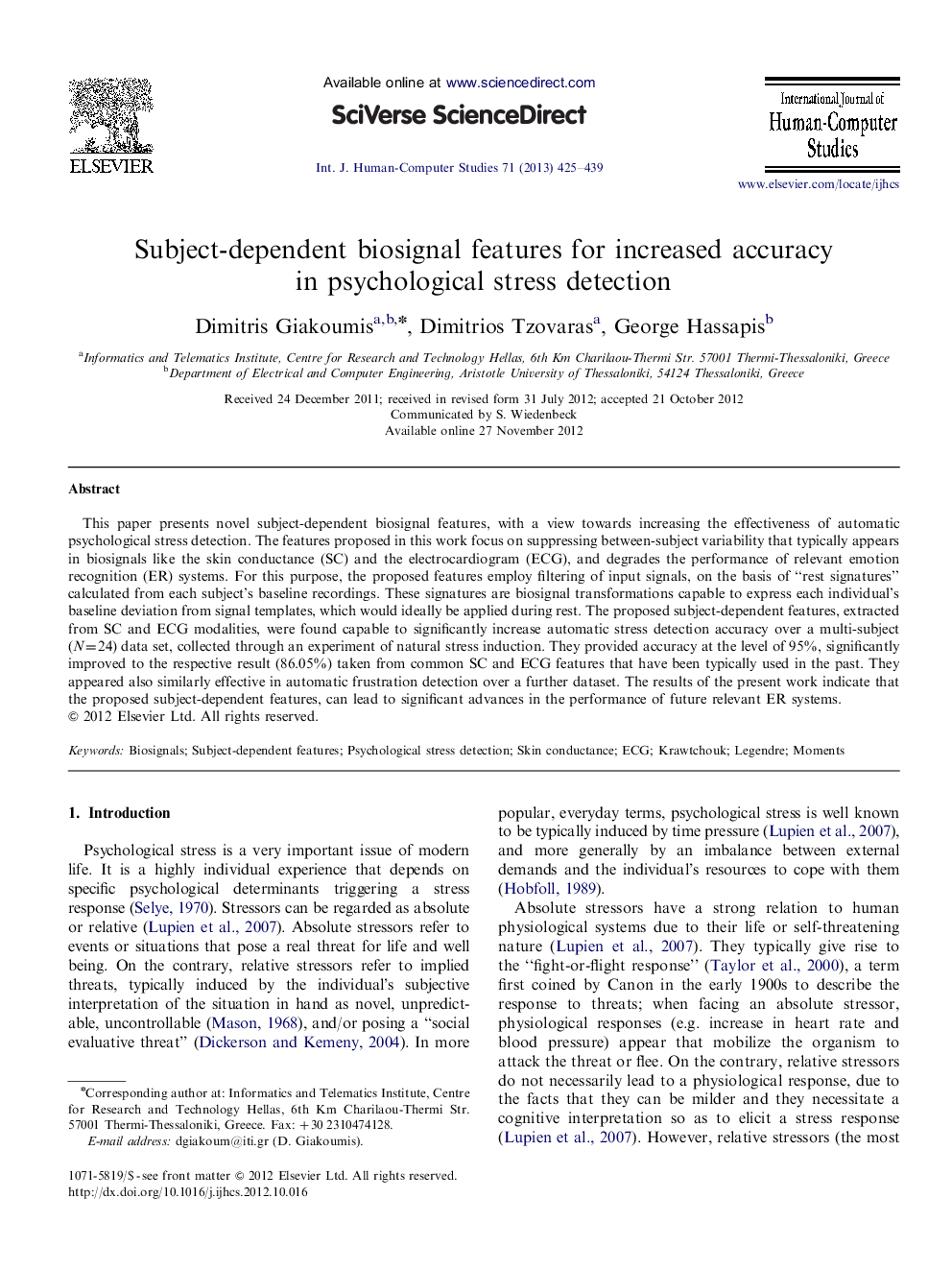| کد مقاله | کد نشریه | سال انتشار | مقاله انگلیسی | نسخه تمام متن |
|---|---|---|---|---|
| 401177 | 1438998 | 2013 | 15 صفحه PDF | دانلود رایگان |

This paper presents novel subject-dependent biosignal features, with a view towards increasing the effectiveness of automatic psychological stress detection. The features proposed in this work focus on suppressing between-subject variability that typically appears in biosignals like the skin conductance (SC) and the electrocardiogram (ECG), and degrades the performance of relevant emotion recognition (ER) systems. For this purpose, the proposed features employ filtering of input signals, on the basis of “rest signatures” calculated from each subject's baseline recordings. These signatures are biosignal transformations capable to express each individual's baseline deviation from signal templates, which would ideally be applied during rest. The proposed subject-dependent features, extracted from SC and ECG modalities, were found capable to significantly increase automatic stress detection accuracy over a multi-subject (N=24) data set, collected through an experiment of natural stress induction. They provided accuracy at the level of 95%, significantly improved to the respective result (86.05%) taken from common SC and ECG features that have been typically used in the past. They appeared also similarly effective in automatic frustration detection over a further dataset. The results of the present work indicate that the proposed subject-dependent features, can lead to significant advances in the performance of future relevant ER systems.
► We propose novel subject-dependent biosignal (GSR and ECG-IBI) features.
► The main aim is to enhance automatic stress detection effectiveness.
► Rest signatures are defined, calculated from each subject's baseline biosignal recordings.
► Experiment was conducted for data collection during stress induction (N=24 subjects).
► Stress detection accuracy: 94.96% with the proposed features; 86.05% with conventional features.
Journal: International Journal of Human-Computer Studies - Volume 71, Issue 4, April 2013, Pages 425–439